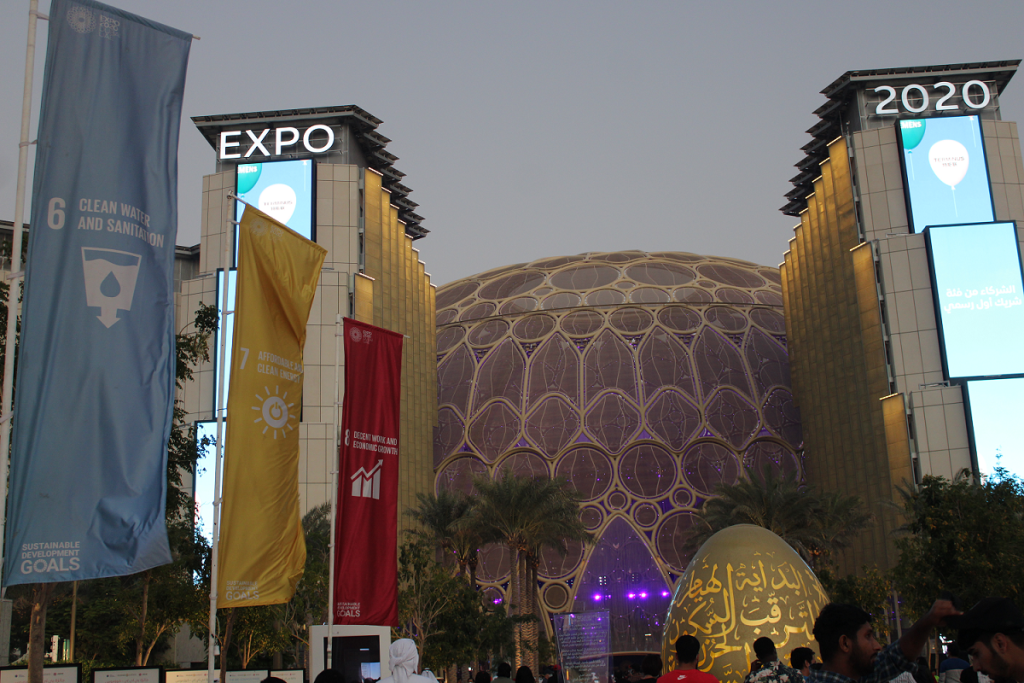African countries have some of the world’s fastest-growing economies, making them increasingly important players in the global economy.
Household income and consumption are expected to rise in the near future due to the country’s young and rapidly growing population. Increased digital and mobile access and infrastructure improvements have put Africa on a path to mass industrialization.
The prospect of investing across Africa’s numerous and diverse countries is vastly different than it was decades ago, thanks to reforms to the continent’s business environment.
Investing in Africa: A perspective from AIM 2022, Dubai
Real and perceived risks continue to exist in Africa, no matter how many opportunities there are. It can be difficult for investors to find and close deals due to institutional and infrastructural barriers, risk and reward imbalances, as well as high transaction costs.
Speakers at the opening ceremony were reminded of the importance of Africa and its resilience against the onslaughts on people and investments. Covid-19, according to UNECA’s Vera Songwe, was evidence that Africa cannot be ignored if the rest of the world is to reap from the 1 billion-plus African population.
Speaking at the Global Leaders Debate: Investments in Sustainable Innovation for a Thriving Future, Songwe said that 60 million electric vehicles are needed by 2050 and the raw materials are in Africa. “The continent controls 30 per cent of the raw materials and the sector needs to be relooked at to see how to attract more investment in the sector.”
Due to MSMEs’ contribution to socio-economic infrastructures in both developed and developing countries during the transition from market-oriented economies, they remain an important part of the continent’s economy.
Small and medium-sized enterprises (SMEs) in Africa face the greatest challenge to their success because of a widening gap in funding between them and the world’s largest corporations.
Alternative funding options are becoming increasingly popular with small businesses. In order to help small and medium-sized businesses (SMEs) overcome the problem of a lack of capital, there is a pressing need for international cooperation.
The majority of the world’s businesses are small and medium-sized enterprises (SMEs), which have a significant impact on job creation and global economic growth. More than half of the world’s businesses are small and medium-sized enterprises (SMEs).
In developing countries, formal SMEs account for up to 40% of GDP, but the number rises dramatically when informal SMEs are included. More than 500 million jobs will be required by 2030 to accommodate the increasing global labour force, according to experts.
Future smart cities and ultra-smart technology services are the focus of Dubai: AIM 2022.
Many governments around the world place a high priority on the development of small and medium-sized enterprises (SMEs). Small and medium-sized businesses (SMEs) account for seven out of every ten jobs created in developing countries. The panellists will work to close the funding gap between SMEs and large corporations at this point.
Funding for Small and Medium-Sized Businesses
At AIM 2022, speakers emphasized that small and medium-sized businesses access to capital remains severely limited. Access to capital is a significant barrier to the expansion of small and medium-sized enterprises (SMEs) in emerging markets and developing countries.
For small and medium-sized businesses, getting a loan from a bank is more difficult. Alternatively, they use their own money or the money of their friends and family to start and run their businesses at first.
Many small and medium-sized businesses (SMEs) are poised to play an important part in helping to restore global economic balance. As a result, small and medium-sized enterprises (SMEs) outnumber and create more employment opportunities than their larger counterparts. As a result of their inherent entrepreneurialism, they play a significant role in shaping global innovation.
An annual meeting of investors agrees that small- and medium-sized enterprises (SMEs) are the lifeblood of developing and developed economies alike. SMEs also play a critical role in global economic growth and the achievement of the Sustainable Development Goals (SDGs).
SMEs are the engines of the emerging and developed economies, and AIM 2022’s goal of improving the global economy mandates that they have something to offer them.
After the Covid-19 pandemic, the most significant economic hit in a century, AIM believes that SMEs need three pillars in order to make progress, thrive, and contribute to fixing the global economy.
SMEs need to find investors who can provide seed money for their new ideas.
SME growth should not be constrained by their structure or resources when faced with an increase in production capacity.
Optimisation- Small and medium-sized businesses (SMEs) must raise their productivity, efficiency, and effectiveness.
As a result of the Annual Investment Meeting, small and medium-sized businesses will have a more positive and clear future.
To meet the needs of all small and medium-sized businesses around the world, AIM 2022 is preparing to offer a variety of benefits, including AIM 2022 offers small and medium-sized enterprises (SMEs) the chance to interact with investors from all over the world and grow their businesses.
In order to expand their businesses internationally, attendees of the Annual Investment Meeting are given the tools they need.
Over 15,000 people from 130 countries are expected to attend, which will allow attendees to expand their professional networks. At the EXPO 2020 Dubai, business owners will have the opportunity to meet and network with global industry experts from all sectors, as well as key market players from diverse entrepreneurial ecosystems.
The EXPO 2020 Dubai will be a platform for businesses to showcase their value-added products to international buyers.
International trade and investment for exports will be discussed with a focus on small and medium-sized enterprises (SMEs).
There are numerous features and activities that are of real value to the owners and collaborators, National SME Councils and programmes, as well as SME Financing institutions and managers & public officials in charge of promoting entrepreneur support and foreign trade, as well as directors and members of Chambers/Federations of Commerce worldwide.
Read:
